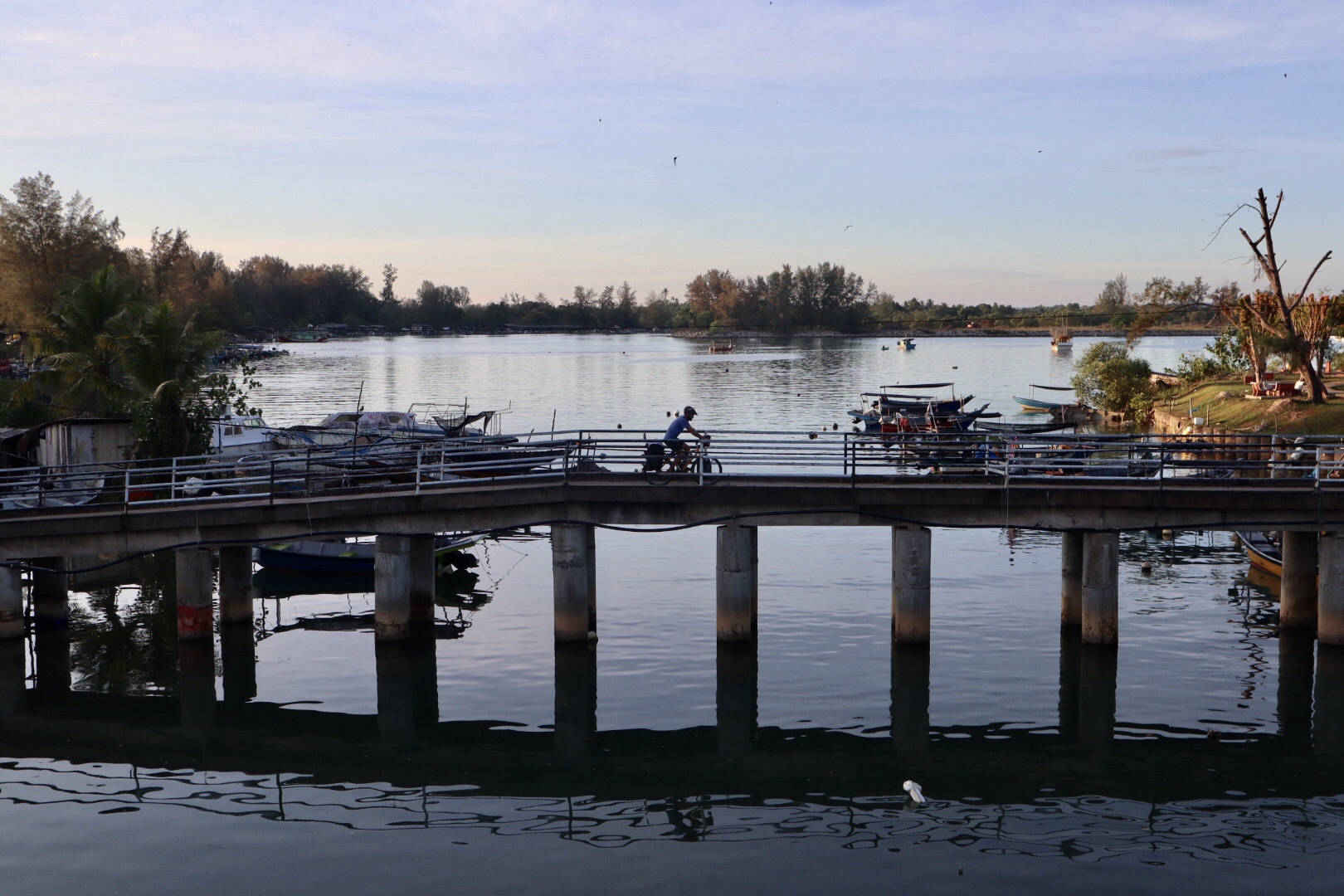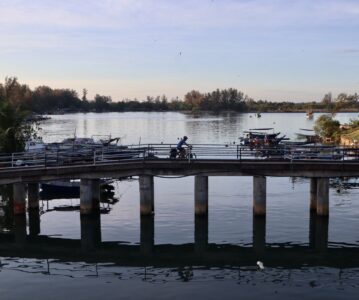We look for a shady spot, stretch out our hammocks and while away the afternoon sweating, reading, swimming, and dozing. This way it is quite comfortable to be pregnant despite the daily bike ride.
The equator is getting noticeably closer. In the morning it stays dark for a long time and when the sun makes it over the horizon line, it takes less than an hour until it is already high in the sky and heats the air mercilessly.
The sun virtually dashes to its highest point in the sky and once it has reached the top, it stays there. From early noon until well into the afternoon, the shadows fall vertically to the ground and are correspondingly small. We are happy to see clouds of all kinds, which make the cooler morning hours a little longer. Now it is the time of the southwest monsoon. That means on the west coast there is heavy rain. As we have already experienced, towards evening the remnants of these heavy rain clouds move over the Malaysian Peninsula and sometimes there are heavy rain showers and storms in the evening or at night also on the east coast.
One of the few big cities on this side of the peninsula is Kuala Terengganu. Here we have an appointment with Tok, one of the few Warmshower hosts on this coast. We are curious and wonder how Tok came to sign up with Warmshowers. There are some racers here, but basically the bicycle seems to be completely displaced by the car. We are accordingly surprised to actually see various touring bikes at Tok’s place and to hear about his adventurous tours in and around Malaysia. Due to his father’s stroke, Tok was forced to give up his studies early in order to support his family financially. An impressive selection of books attests to the fact that the good Tok is well read. His father insisted that he set up a place to study in the simple home, so that he could at least acquire some knowledge through self-study. He is particularly fond of some of the ideas of socialism. But the clever man is also talented in handicrafts: Currently he is building a house (!) for his brother behind his parents’ house. Oh yes, he works on it after work and on weekends. If he still has time, he is busy developing small machines, reading his clever books or dreaming of his next big bike tour in Borneo. Once again, we are aware of our own privileges. In our “Western” individual culture, it is easy to get lonely, but we are not responsible for all the family’s fortunes. What we earn basically goes into our private bank account, if someone in our environment is struck by a stroke of fate, at least financially an insurance company steps in and apparently everyone is the architect of his own fortune. In many countries that we get to know on our journey, a pluralistic culture is lived. It is not primarily about self-fulfillment and independence. The family, one’s own culture and the wider environment are paramount. No one seems to be alone here, neither the elderly nor the young families. Children are still raised by the village. At the family picnics, the grandmother is laid on a cushion somewhere, sprinkled with sand by the great-grandchildren, and the older men sit together on the beach and leisurely smoke their cigarettes. In our eyes, all this seems very romantic and we believe we are observing lost values and natural social structures here in our country. What brings us humans real happiness? Tok has an incredibly strong personal anchoring on the one hand due to his involvement in his family and neighborhood, but of course he also has a huge responsibility. For him, it’s not as easy to save money or set out on a “first-person bicycle trip” as it is for us. Our parents let us go and support us morally. In Malaysia and elsewhere, in addition to a good education, the aim is rather to get married and start a family. However, we do experience an attractive mixture of the two value systems here. Family culture is also upheld by young Malaysians and by no means excludes a modern lifestyle. Marriage is surprisingly late and a good education is highly valued. At least on this side of the coast we meet almost without exception devout Muslims; religion is a natural part of everyday life and the imams always call successfully to prayer. Tok also excuses himself from time to time for prayer – the mosque is right next door.
Tok shows us how people eat in Malaysia. Even here in the small village a little outside the city, it is customary not to cook for oneself, but to visit one of the small pubs. Apparently there are specific morning pickles that offer nasi lemak, various, sweet dishes, some curries and the obligatory tehs and kopis (tea and coffee). The drinks are mostly served with sweet condensed milk and Tok helps us to disentangle the jungle of names: There is Kopi or Teh with the names Teh-C, Teh-O, Teh-C-Kosong, Teh Peng and countless other variations. The names indicate the proportions of condensed milk, water and sugar in the brew. As soon as the morning meal time has passed, these pubs close and the next category opens in a smooth transition. From now on, the curry buffets and of course the delicious Roti Channai can be enjoyed. Towards evening, another shift change takes place and the dinner venues open with a somewhat wider selection and cater to their clientele well into the night. This results in reasonable working hours for the operators and instead of just one restaurant, three establishments earn their living at the same location.
Translated with www.DeepL.com/Translator (free version)


